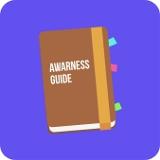

Bali Currency
- Introduction
- A Brief Overview of Currency Used in Bali
- Understanding Bali currency
- Currency Exchange tips
- Tips for Getting the Best Exchange Rates
- Avoiding Scams
- Using Credit Cards & Debit cards
- ATMs in Bali
- Currency Conversion Apps & Tools
Bali is known for its natural beauty and is also a treasure trove of Indonesia’s rich cultural and historical heritage. It is no wonder that the island welcomes millions of tourists from across the globe every year, including lakhs of Indian travellers. Bali is an affordable holiday destination for Indians and setting up a Bali trip itinerary is fairly simple. However, when planning an international trip, there are many aspects that one has to take care of, such as booking flights and hotels, hiring local guides for sightseeing, etc. Another important thing one has to take care of is acquiring foreign exchange for the trip. In this article, we will go through everything one needs to know about the currency in Bali.
A brief overview of currency used in Bali
Bali is an island and a province in the Republic of Indonesia, and similar to other nations in the world, it has its own unique currency system. The currency in Bali is called the Indonesian Rupiah, which is denoted by the symbol: Rp and code: IDR. Issued and controlled by Bank Indonesia, it is the official currency all over the country, including the island of Bali. It was first introduced in the country back in 1946, replacing the Japanese issuer version of the Netherlands Indies Guilder. The exchange rate of IDR against the Indian Rupee is quite good, where 1 Indonesian rupiah is equivalent to 0.0052 Indian Rupee. Note that this exchange rate is as of 7th August, 10:18 AM UTC and is subject to change, so check it yourself before exchanging currency.
Cool fact:
The name of the local currency of Indonesia is derived from Rupyakam, which is the Sanskrit word for silver. The locals in Bali and other places in the country often refer to the rupiah in coins as “Perak”, which means silver in Indonesian.
Understanding Bali currency
Bali is a part of Indonesia, hence it only accepts the Indonesian Rupiah for settling financial obligations via money. One Indonesian Rupiah can further be divided into 100 cents. However, due to the increasing inflation in the country, the coins and banknotes denominated in cents have been rendered obsolete. The super unit of IDR is as follows;
- 103 = ribu (thousand)
- 106 = juta (million)
- 109 = miliar (billion)
- 1012 = triliun (trillion)
The denominations on the official Indonesian currency banknotes are as follows;
- Rp100,000
- Rp50,000
- Rp20,000
- Rp10,000
- Rp5,000
- Rp2,000
- Rp1,000
The denominations on the official Indonesian currency coins are as follows;
- Rp1000
- Rp500
- Rp200
- Rp100
- Rp50
Did you know?
Though the Rp25 coin was in official circulation in Indonesia, it has now become a defunct denomination in the country. Besides, most of the time when dealing with money in Bali, or other parts of the country, you will see the denominations in IDR coins of Rp1000 and Rp500 being used frequently, with Rp50, Rp100 and Rp200 being rarely used. In contrast, all denominations of the banknotes are frequently used in the country. There is a Rp75,000 banknote denomination also that was released back in 2020 to commemorate the country’s 75th independence day.
Now that you have some idea about the Indonesian Rupiah, its denominations in active circulation and its currency exchange rate against the INR, it is time to understand where you can exchange your INR for IDR for the trip;
1. Exchange at home:
Exchanging money in your home country, i.e., at banks, through a local forex dealer or travel agent, or an online forex service, prior to the trip is widely recommended. You can do your research and get good exchange rates in doing so. However, if you have skipped this step, no need to worry, as you will still be able to exchange money in Bali after you land.
2. Banks:
There are many banks in Bali where you can avail of the money exchange services if the need be. Though the exchange rates at this place are not that attractive compared to money changers, you get the safety and reliability of each transaction.
3. Local money changers:
One of the most preferred ways tourists like to exchange money in Bali is through local money changers. There are plenty of reputed money changers in Bali, who take most currencies across the globe, including INR, USD, AUD, Singaporean Dollar, etc. The exchange rates offered at these establishments are also good, however, we advise you to stick to the reputed and authorised money changers in order to avoid any scams.
4. At the airport:
At the Bali airport, you can find plenty of money changers and ATM machines through which you can exchange money.
5. ATMs:
You can use your international debit or credit card at one of the ATMs in Bali to withdraw cash in local currency. It is a handy way to get cash for the trip on the go.
Currency Exchange tips
Though you can exchange money almost anywhere in Bali, you should only stick to establishments and services that are authorised and known to be legit. Here are some tips that can help you get the best money exchange experience and save you from getting ripped off;
- After landing at the Ngurah Rai International Airport in Denpasar, you can look for and avail of the money exchange services available there. However, you should only use the money exchange at the airport in case of an emergency or to get a small amount exchanged to pay for only immediate expenses, like taxi fare, etc. This is because the rates offered at the airport are not very good, while the exchange rate available in the city areas in Bali is quite good in comparison.
- The same goes for exchanging money at hotels. While they are conveniently available within your reach, the exchange rates offered are generally poor, with high transaction fees. So, it is better to avoid exchanging money at hotels.
- Always check the current exchange rates in the market online before going to exchange money. This will help you to spot a bad deal and avoid it.
- You can get a prepaid Forex travel card for the holidays in Bali. It allows you to deposit money in your own currency and it will be converted into a foreign currency of your choice, letting you make seamless payments during your holidays.
- After exchanging money in Bali, make sure to carefully inspect the banknotes. Ensure that the bills are legit, clean and free of any tears or damages.
- If you find a money exchange offer that seems too good to be true, chances are it is a scam. So, be mindful of this and exchange money only after verifying the authenticity of the exchanger.
- After exchanging money, make sure to count the bills carefully to ensure you have gotten the right amount.
- If a money exchanger is charging a “zero fee” for their services, there’s a chance that they will offer poor exchange rates. Generally, reputed exchangers charge a nominal fee and offer money exchange at competitive rates.
- When using ATMs or card machines in Bali to withdraw cash, make sure to choose to get charged in the local currency, i.e., the Indonesian Rupiah. This will ensure you get the fairer rates and fees compared to getting charged in your home country's currency.
Cool tip:
There are plenty of well-known, authorised money changer services in the major tourist areas in Bali, including Ubdu, Seminyak, Kuta, Denpasar, etc. Some of the most popular options you can choose are Central Kuta Money Exchange, PT Dirgahayu Valuta Prima, Cash X Change, PT Bali Maspintjinra, MPB Money Changer (MPB Kartika Plaza), BMC Seminyak, PAM Money Changer, etc.
Using Credit Cards & Debit cards in Bali
Due to the massive influx of tourists every year in Bali, most establishments, like hotels, restaurants, general shops, tour operators, etc., on the island are accepting payments made via international credit and debit cards, like hotels. This is more evident in places that are major tourist hotspots. However, if you move to a less-tourist-focused area or the rural side, chances are you may have trouble using credit and debit cards for payments, especially at local shops and small stores. You should also note that some businesses in Bali, including hotels, small shops, guesthouses, etc., may charge an additional 3% as a surcharge. This is obviously not correct but also can’t be argued in many places. So, sticking with cash and forex cards is your best deal.
Two of the most accepted international credit cards in Bali are Visa and Mastercard. Only a few establishments may accept Amex, while Diners Club is very rarely accepted. When using card payments on card machines, choose to be charged in Indonesian Rupiah for better rates and fees.
ATMs in Bali
ATMs are everywhere in Bali, allowing tourists to cash out when in need without much of a hassle. You can find ATMs at the Bali airport, attached to major banks, standalone machines from banks in the city, convenience stores, etc. You can use your international debit or credit card, and even a forex card at selected locations, to draw money from ATMs in Bali. Note that, when cashing out, choose to be charged in the local currency of Bali for better exchange rates. Additionally, you should know that;
- The ATMs in Bali only dispense money in two denominations, i.e., Rp50,000 and Rp100,000 banknotes. There will be a sticker helping you identify which one is which.
- When withdrawing money from ATMs, make sure to take your card out at the end of the transaction. The money is handed out first and then the card is returned, which causes many people to forget to take it back.
- In most ATMs across Bali, the upper limit on withdrawals per transaction is between Rp1,250,000 to Rp3,000,000. However, the maximum withdrawal limit per day is 6,000,000 Indonesian Rupiah.
- Some of the most reputed ATMs to withdraw money from in Bali are Permata Bank, bank Central Asia (BCA), Bank Negara Indonesia (BNI) and Bank Mandiri.
- Before using an ATM in Bali, enquire if your bank has a partnership program with a local bank in Indonesia. If it does, you can use their ATM to withdraw money at good rates, minus unnecessary extra fees.
Cool tip:
It is not uncommon for foreigners to get confused when dealing with cash in Bali, Indonesia. Hence, getting familiar with the local currency, especially if you are planning on using cash and coins, prior to the trip is highly advised. In addition to looking at the printed denomination on the banknote, you can consider getting habituated to the colour of the banknotes. Each banknote in Indonesia is of different colour, with the Rp1,000 being yellow, Rp2,000 being grey, Rp5,000 being brown/orange-ish, Rp10,000 being purple, Rp20,000 being green, Rp50,000 being blue and Rp100,000 being red/pink-ish.
Currency conversion apps & tools to use in Bali
One of the best ways to stay up-to-date with the latest conversion rates and help with budgeting on the trip is to use a currency conversion app or tool. Here are some popular examples that you can look into;
1. XE Currency Converter:
It is a reliable and accurate online currency converter that uses mid-market rates and showcases real-time exchange rates. All you need to do is enter the amount in INR and convert it to IDR, or vice versa, to get the converted value.
2. Indonesian Rupiah Converter:
For this same purpose, you can also use a mobile app called Indonesian Rupiah Converter by DeadSimpleApps / D.G., which lets you convert IDR to popular world currencies in a fast and easy way. It is available for both Android and iOS.
Cultural etiquette with currency
Bali in Indonesia is a very culturally rich land and there are certain etiquette related to the local currency that tourists visiting the island should know;
- According to the local culture, the left hand is considered dirty. Hence, when doing an action, especially when giving or receiving something, the right hand or both hands are used. This is evident in the case of exchanging money in Bali.
- Tipping is not necessary or a part of the local culture in Bali. It is completely optional, which you can give if you are satisfied with the service. A tip of 5-10% of the total amount is fairly justified.
- A general tip when handling money is to keep it in good condition. Just like you won't accept crease or damaged notes, so will the person you are paying.
- When asking for or getting change in Bali, make sure to show some respect and gratitude. You can use phrases like “Tolong” for please and “Suksma” for thankyou.
- Another general tip when handling money in Bali is to avoid disrespecting it in any way or form.
- Balinese offerings are a major part of the local culture, which generally includes fruits, sweets and incense in small baskets but may also include a small amount of money.
- Some local vendors in Bali tend to charge more money from foreigners for their services or products. While bargaining to keep the price down is a common practice, make sure to do it respectfully, without being rude.
Emergency currency options in Bali
While carrying local currency in the form of cash and forex cards is advised for general spending in Bali during a trip, having your international debit and credit cards with you is also recommended in case of emergency expenses. Emergencies are unpredictable and can arise in the form of medical, journey and baggage-related inconveniences. Dealing with such hassles can be both mentally and financially straining, especially if there is a massive cost to bear, like emergency medical treatment. This is why investing in international travel insurance for Bali is highly recommended, as it covers a variety of unforeseen damages, which include medical and non-medical emergencies.
Ensure a worry-free trip to Bali with comprehensive protection.
KNOW MORE







 Health Insurance
Health Insurance  Travel Insurance
Travel Insurance  Car Insurance
Car Insurance  Cyber Insurance
Cyber Insurance  Critical Illness Insurance
Critical Illness Insurance
 Pet Insurance
Pet Insurance
 Bike/Two Wheeler Insurance
Bike/Two Wheeler Insurance  Home Insurance
Home Insurance  Third Party Vehicle Ins.
Third Party Vehicle Ins.  Tractor Insurance
Tractor Insurance  Goods Carrying Vehicle Ins.
Goods Carrying Vehicle Ins.  Passenger Carrying Vehicle Ins.
Passenger Carrying Vehicle Ins.  Compulsory Personal Accident Insurance
Compulsory Personal Accident Insurance  Travel Insurance
Travel Insurance  Rural
Rural 










